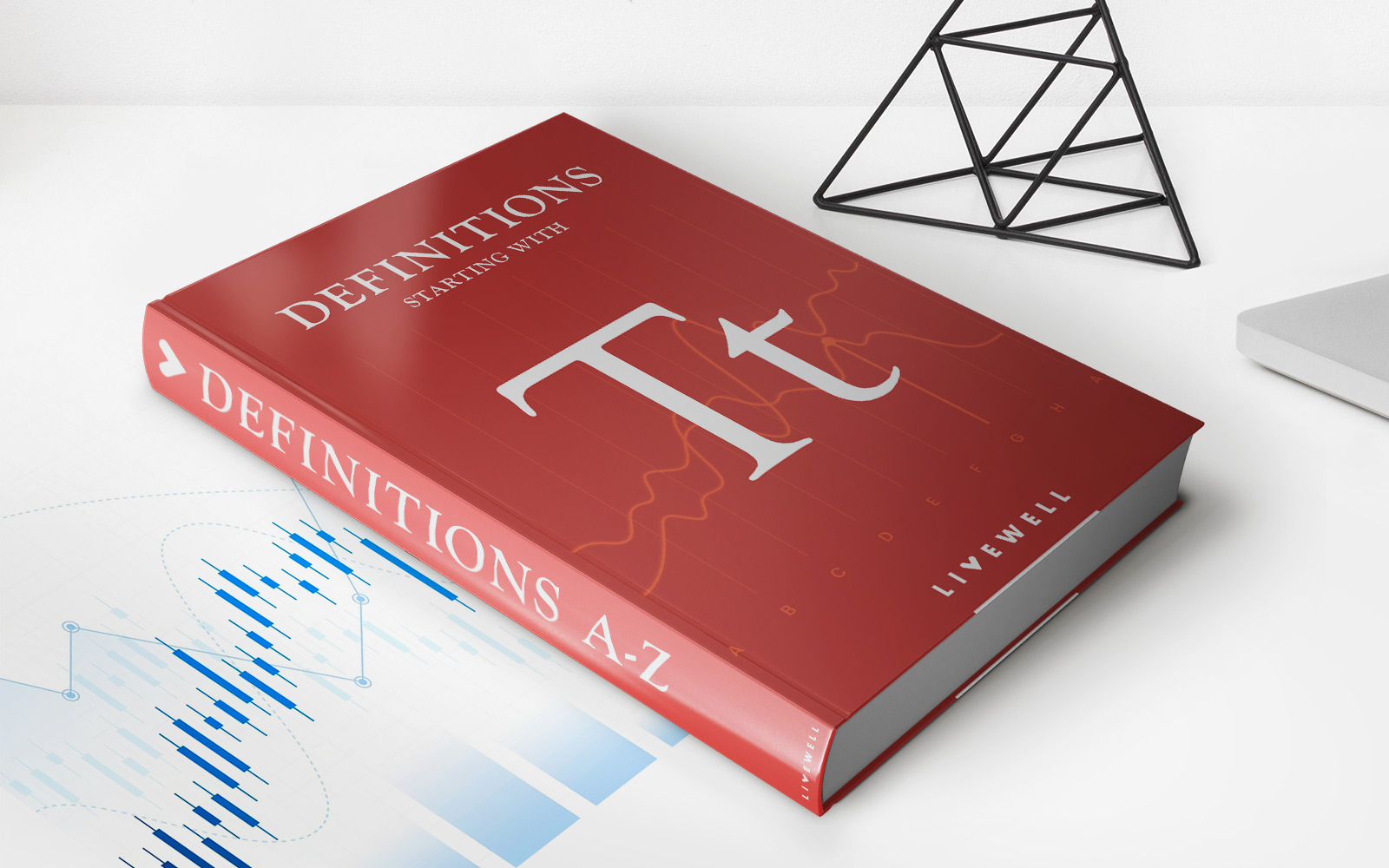Home>Finance>What Happens When You Miss A Minimum Payment For A Credit Card


Finance
What Happens When You Miss A Minimum Payment For A Credit Card
Published: February 26, 2024
Learn the consequences of missing a minimum credit card payment and how it can impact your finances. Understand the importance of timely payments to maintain financial stability.
(Many of the links in this article redirect to a specific reviewed product. Your purchase of these products through affiliate links helps to generate commission for LiveWell, at no extra cost. Learn more)
Table of Contents
Introduction
Understanding the Importance of Timely Credit Card Payments
Managing credit card payments is a crucial aspect of maintaining a healthy financial profile. However, life can be unpredictable, and sometimes, despite our best intentions, we may find ourselves unable to make the minimum payment on our credit card. In such situations, it’s essential to understand the potential consequences and take proactive steps to mitigate any adverse effects.
Missing a minimum payment for a credit card can lead to a cascade of financial repercussions, including damage to your credit score, the imposition of late fees and penalty APR, and in extreme cases, potential legal action by the credit card issuer. By exploring the various outcomes of missing a minimum payment and learning how to navigate this challenging scenario, you can empower yourself to address the issue effectively and minimize its impact on your financial well-being.
In this article, we will delve into the consequences of missing a minimum payment for a credit card, examine the potential impact on your credit score, late fees, penalty APR, and the possibility of facing legal action. Additionally, we will provide practical tips for managing a missed payment, helping you navigate this situation with confidence and knowledge.
Consequences of Missing a Minimum Payment
When you miss a minimum payment on your credit card, several consequences can unfold, affecting your financial standing and peace of mind. Understanding these potential outcomes is crucial for taking proactive measures to address the situation effectively.
One immediate consequence of missing a minimum payment is the incurring of late fees. Credit card issuers typically impose a fee when a payment is not received by the due date, and these fees can quickly add up, exacerbating the financial strain caused by the missed payment. Moreover, missing a minimum payment can trigger the imposition of a penalty Annual Percentage Rate (APR), leading to higher interest charges on your outstanding balance.
Furthermore, a missed payment can result in the suspension of certain credit card benefits, such as rewards and promotional offers. This can diminish the value you derive from your credit card and impact your overall financial strategy. Additionally, repeated missed payments can lead to a deterioration of your relationship with the credit card issuer, potentially affecting your eligibility for future credit products and favorable terms.
From a psychological standpoint, the stress and anxiety stemming from a missed payment can take a toll on your well-being, impacting your overall quality of life. The fear of facing financial repercussions and the burden of managing the aftermath of the missed payment can be emotionally taxing, underscoring the importance of promptly addressing the situation.
By recognizing the multifaceted consequences of missing a minimum payment for a credit card, you can gain a comprehensive understanding of the challenges that lie ahead. In the subsequent sections, we will delve into the specific impacts on your credit score, the implications of late fees and penalty APR, and the potential for legal action by the credit card issuer, equipping you with the knowledge to navigate this scenario effectively.
Impact on Credit Score
Missing a minimum payment for a credit card can have a significant impact on your credit score, which serves as a crucial indicator of your financial responsibility and trustworthiness in the eyes of lenders and financial institutions. Your payment history comprises a substantial portion of your credit score, making timely payments a cornerstone of maintaining a positive credit profile.
When a minimum payment is missed, the credit card issuer may report this delinquency to the credit bureaus. This can result in a negative mark on your credit report, potentially lowering your credit score. The extent of the impact depends on factors such as the recency of the missed payment, the frequency of delinquencies, and the severity of the overall credit history.
A lower credit score can have far-reaching implications, affecting your ability to secure favorable terms on future credit products, such as loans and additional credit cards. Lenders rely on credit scores to assess the risk associated with extending credit to individuals, and a diminished score may lead to higher interest rates or outright rejections of credit applications.
Furthermore, a lower credit score can influence non-credit-related aspects of your life, such as rental applications, insurance premiums, and even employment opportunities. Employers and landlords may review credit scores as part of their evaluation process, and a tarnished credit history could potentially hinder your prospects in these areas.
Addressing a missed payment and mitigating its impact on your credit score should be a priority. Taking proactive steps, such as communicating with the credit card issuer, setting up payment arrangements, and diligently adhering to future payment schedules, can help minimize the long-term repercussions on your credit score.
Understanding the correlation between missed payments and credit score fluctuations underscores the importance of promptly addressing any delinquencies and implementing strategies to safeguard your credit standing. In the subsequent sections, we will explore the implications of late fees and penalty APR resulting from missed payments, shedding light on the financial ramifications of this challenging scenario.
Late Fees and Penalty APR
When a minimum payment is missed on a credit card, the cardholder is typically subjected to late fees, which are additional charges imposed by the credit card issuer for failing to make the required payment by the due date. These fees can vary in amount and are often compounded by the accrual of interest on the outstanding balance, further exacerbating the financial burden.
Moreover, a missed payment can trigger the activation of a penalty Annual Percentage Rate (APR). The penalty APR is a higher interest rate applied to the cardholder’s balance as a consequence of delinquency. This elevated APR can significantly increase the cost of carrying a balance on the credit card, leading to greater interest charges and prolonged debt repayment.
It’s important to note that once the penalty APR is activated, it may remain in effect for an extended period, compounding the financial strain caused by the missed payment. This underscores the urgency of addressing any delinquencies and working to rectify the situation to prevent the imposition of penalty APR and mitigate its long-term impact.
Understanding the financial implications of late fees and penalty APR resulting from missed payments is essential for formulating a proactive approach to managing the aftermath of a delinquency. In the subsequent sections, we will delve into the potential for legal action by the credit card issuer and provide practical tips for dealing with a missed payment, empowering you to navigate this challenging scenario with confidence and resilience.
Potential Legal Action
When a minimum payment is missed on a credit card, the credit card issuer may take steps to recover the outstanding balance, including the possibility of pursuing legal action. While this is typically considered a last resort, it’s essential to be aware of the potential consequences of prolonged delinquency and non-payment.
Legal action initiated by the credit card issuer can take various forms, including the filing of a lawsuit to compel payment, obtaining a judgment against the cardholder, and, in extreme cases, seeking wage garnishment or asset seizure to satisfy the debt. It’s important to note that the specific actions available to the credit card issuer may vary based on the jurisdiction and the terms outlined in the cardholder agreement.
Facing legal action due to a missed payment can be a distressing and overwhelming experience, underscoring the critical importance of addressing any delinquencies proactively. Communicating with the credit card issuer, exploring options for repayment, and seeking professional guidance, if necessary, can help mitigate the risk of escalating the situation to the legal realm.
Understanding the potential for legal action resulting from missed payments underscores the urgency of taking decisive steps to address any delinquencies promptly. In the subsequent section, we will provide practical tips for dealing with a missed payment, empowering you to navigate this challenging scenario with knowledge and resilience.
Tips for Dealing with a Missed Payment
When faced with a missed payment on a credit card, it’s essential to take proactive measures to address the situation and mitigate its impact on your financial well-being. By implementing the following tips, you can navigate this challenging scenario with resilience and work towards resolving the delinquency effectively.
- Communicate with the Credit Card Issuer: Reach out to your credit card issuer as soon as possible to explain the circumstances that led to the missed payment. In some cases, they may offer flexibility and assistance in the form of payment arrangements or hardship programs.
- Set Up Payment Arrangements: If feasible, work with the credit card issuer to establish a realistic payment plan that allows you to gradually catch up on the missed payment while managing your current expenses.
- Automate Minimum Payments: Consider setting up automatic payments for the minimum amount due to avoid future missed payments. This can provide peace of mind and help prevent similar situations in the future.
- Monitor Your Credit Report: Regularly review your credit report to ensure that any reported delinquencies are accurate. Disputing inaccuracies can help mitigate the impact on your credit score.
- Seek Financial Counseling: If you find yourself struggling to manage your finances and credit card payments, consider seeking assistance from a reputable financial counselor who can provide personalized guidance and strategies for improving your financial situation.
By taking proactive steps and leveraging the available resources, you can effectively address a missed payment and work towards minimizing its impact on your financial stability. It’s important to approach this situation with transparency, determination, and a commitment to regaining control of your financial well-being.
Understanding the potential consequences of missed payments and the proactive strategies for managing them empowers you to navigate this challenging scenario with confidence and resilience. By taking decisive action and seeking assistance when needed, you can mitigate the repercussions of a missed payment and work towards restoring financial stability.
Conclusion
Managing credit card payments is a fundamental aspect of maintaining a healthy financial outlook, yet unforeseen circumstances can lead to missed minimum payments, triggering a cascade of potential repercussions. By understanding the multifaceted impact of missed payments and taking proactive measures to address them, individuals can navigate this challenging scenario with resilience and determination.
From the imposition of late fees and penalty APR to the potential for legal action by the credit card issuer, the consequences of missed payments underscore the importance of promptly addressing any delinquencies. Furthermore, the impact on credit scores and the broader financial implications highlight the need for proactive strategies to mitigate the long-term effects of missed payments.
By communicating with the credit card issuer, setting up payment arrangements, and seeking financial counseling when necessary, individuals can work towards resolving missed payments and regaining control of their financial well-being. Additionally, the automation of minimum payments and regular monitoring of credit reports can help prevent future delinquencies and safeguard credit scores.
Empowered with knowledge and proactive strategies, individuals can effectively navigate the aftermath of missed payments, minimize their impact, and work towards restoring financial stability. By approaching this challenge with transparency, determination, and a commitment to financial responsibility, individuals can overcome the hurdles posed by missed payments and embark on a path towards long-term financial health.
Ultimately, the ability to address missed payments effectively lies in recognizing the challenges they present, seeking assistance when needed, and taking decisive action to rectify the situation. By doing so, individuals can emerge from this experience with valuable financial insights and a strengthened resolve to manage their credit responsibilities with confidence and resilience.














